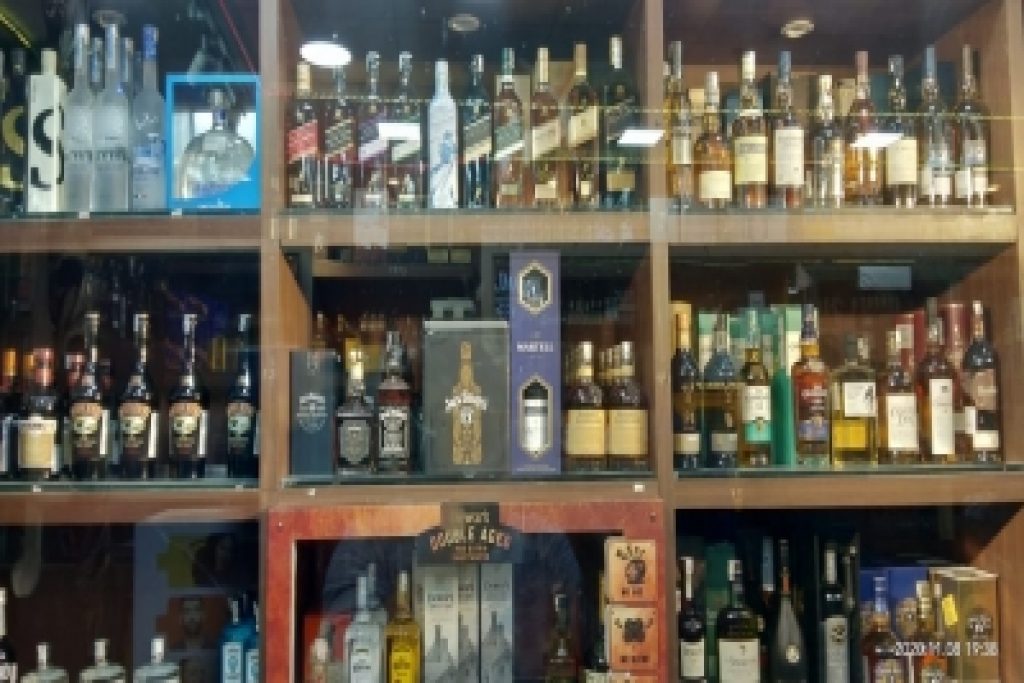New Delhi: The national capital is facing a liquor crisis after a sudden U-turn of the Delhi government. On 30 July, Delhi’s Deputy Chief Minister Manish Sisodia announced that the government’s new liquor policy would be entirely scrapped and only government-owned vends will be allowed to operate.
Later, for stock clearance and to avoid disruption of liquor supply as well as to prevent the sale of unauthorized liquor in the capital, this policy was extended to 31 August. From 1 September, Delhi will again embrace its old excise policy, under which government agencies will run the retail liquor business in the capital. Despite the extension, the national capital is facing a liquor shortage because of the massive purchase of liquor by customers and liquor vendors refusing to place bulk orders ahead of their shops closing down next month.
“We are not placing large orders because we are uncertain about this extension. Currently, we are facing a shortage of premium brands and soon, non-premium brands will also run out of stock,” said a liquor trader. While talking with The Sunday Guardian, Vinod Giri, Director General, Confederation of Indian Alcoholic Beverage Companies, said that the current situation of the market “for one month supply chain would be disrupted. Many shops would shutter down after clearing stocks. The new system will take time to come into effect. What the pricing, taxing and other things will be is unclear,” said Giri. “This is a loss to all stakeholders, be it the government, the manufacturers, the traders or the consumers,” Giri added.
After uncertainty for two days, most of the liquor vends and bars were reopened on 2 August, but 126 stores out of 468 downed their shutters permanently. Out of the total 32 zones, six liquor zones have surrendered their permits permanently. Areas like Greater Kailash, Rohini, Shalimar Bagh, Chandni Chowk, Kasturba Nagar, Anand Vihar, Punjabi Bagh, Chittaranjan Park, Paharganj, Sarita Vihar and others have no liquor supply.
The new liquor policy was implemented in November last year. The aim of this policy was to open around 850 liquor vends in the capital. Delhi was divided into 32 zones and each zone was allocated 27 liquor vends. The retail trade of liquor was handed over to private players. The Delhi government was projecting revenue of Rs 10,000 crore from this policy in future.
This sudden move on the policy front was taken after Delhi Police’s economic offence wing launched a probe on the Delhi Excise department due to alleged irregularities in the new policy. “There are many products which are not available in the market. This shortage has increased the prices of some liquor brands in the capital. In future, there would be no discounts and offers if the government runs the business,” said Giri.
“This sudden change has impacted the supply chain but the demand for liquor is steady; due to this factor, we are witnessing a crisis,” a retired excise officer said. In the mid-1970s, Delhi witnessed a hooch tragedy, which resulted in the death of hundreds of people. After this incident, the liquor business in the capital was taken over by the government. After 45 years, again the liquor business went into the hands of private players, but this recent step has again brought the business into the hands of government agencies.
After Delhi government’s policy U-turn, national capital faces liquor shortage
- Advertisement -

